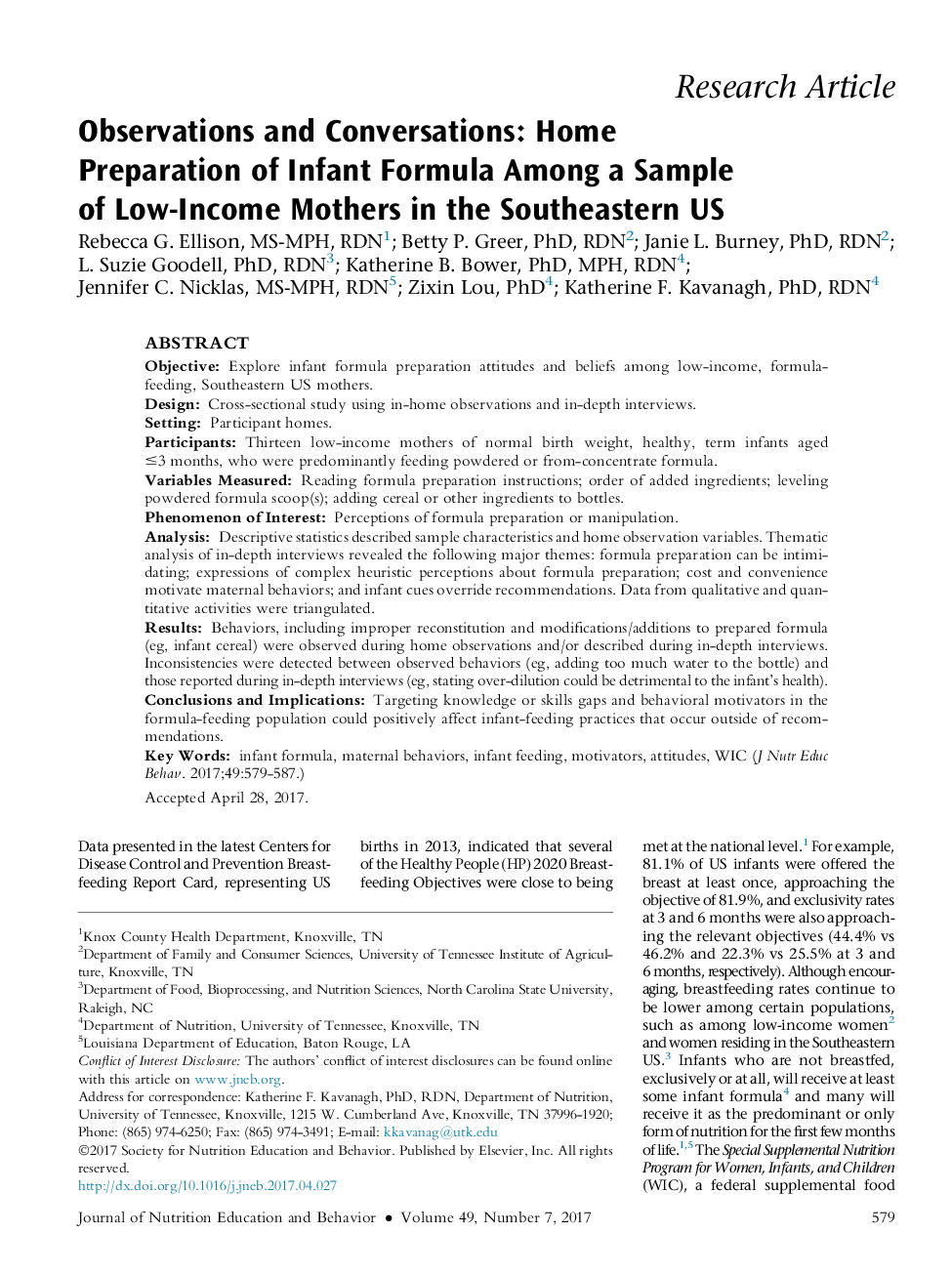| Article ID | Journal | Published Year | Pages | File Type |
|---|---|---|---|---|
| 4939524 | Journal of Nutrition Education and Behavior | 2017 | 10 Pages |
ObjectiveExplore infant formula preparation attitudes and beliefs among low-income, formula-feeding, Southeastern US mothers.DesignCross-sectional study using in-home observations and in-depth interviews.SettingParticipant homes.ParticipantsThirteen low-income mothers of normal birth weight, healthy, term infants aged â¤3 months, who were predominantly feeding powdered or from-concentrate formula.Variables MeasuredReading formula preparation instructions; order of added ingredients; leveling powdered formula scoop(s); adding cereal or other ingredients to bottles.Phenomenon of InterestPerceptions of formula preparation or manipulation.AnalysisDescriptive statistics described sample characteristics and home observation variables. Thematic analysis of in-depth interviews revealed the following major themes: formula preparation can be intimidating; expressions of complex heuristic perceptions about formula preparation; cost and convenience motivate maternal behaviors; and infant cues override recommendations. Data from qualitative and quantitative activities were triangulated.ResultsBehaviors, including improper reconstitution and modifications/additions to prepared formula (eg, infant cereal) were observed during home observations and/or described during in-depth interviews. Inconsistencies were detected between observed behaviors (eg, adding too much water to the bottle) and those reported during in-depth interviews (eg, stating over-dilution could be detrimental to the infant's health).Conclusions and ImplicationsTargeting knowledge or skills gaps and behavioral motivators in the formula-feeding population could positively affect infant-feeding practices that occur outside of recommendations.
